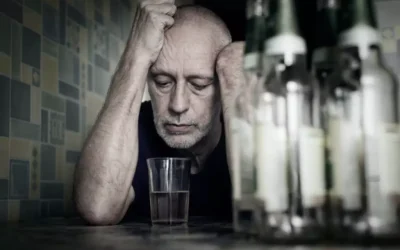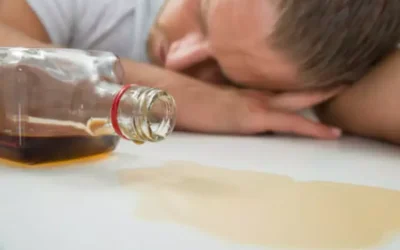There is also evidence that chronic alcohol abuse can lead to lasting anxiety, even after a person becomes sober. An increase in cortisol can reduce your ability to regulate your emotions the next day. In a study published does alcohol cause panic attacks in 2021, researchers noted that a negative frame of mind is likely to get in the way of healthy coping strategies. Using alcohol to cope may lead to more severe hangover symptoms if you already have anxiety or depression.
Effects of co-occurrence on alcohol treatment outcomes
These biological theories suggest that there could be a brain mechanism that is responsible for both anxiety symptoms and drinking behaviors. There’s no magic pill to improve your mood, but managing your hangover symptoms can make you feel better overall. In addition to minimizing your chances of a hangover with the above tips, the Cleveland Clinic recommends eating complex carbs to help increase blood sugar and reduce nausea. And like we said, drinking water can keep you hydrated, which may help you avoid a pounding headache. If you do wind up with one, taking a nonsteroidal anti-inflammatory, like aspirin, can help ease the pain. The Cleveland Clinic recommends that you avoid taking acetaminophen—found in Tylenol—since it can be toxic when there’s alcohol in your system.
- Alcohol use can cause sexual dysfunction, such as difficulty achieving or maintaining an erection and decreased sexual sensations.
- Hangxiety is a term that describes hangover anxiety, an experience of anxiousness that occurs after you’ve been drinking alcohol.
- If the factors involved in a classic hangover can also contribute to anxiety, treating your physical hangover may help you mentally.
- Interestingly, some doctors use anxiety medications to help people withdraw from alcohol when it’s been determined medically necessary due to the withdrawal effects of abruptly quitting alcohol.
How to prevent alcohol causing or worsening anxiety
Drinking excessive amounts of alcohol can also have noticeable physical and mental consequences. Over time, consuming too much alcohol can lead to blackouts, loss of memory, and even brain damage (especially if it causes other health problems, such as liver damage). But if drinking never ends, and the alcohol use becomes chronic, you might begin to see how anxiety and alcohol misuse can feed into each other. The withdrawal period normally peaks 72 hours after the blood alcohol level drops.

Symptoms and Types of Anxiety

These activities lessen the impact of stress and anxiety, and when you can weaken the effects of stress, you give your mind a better chance of regaining its own natural coping strength. Quitting alcohol can also lead to long term anxiety from extended withdrawal symptoms, known as protracted withdrawal. This type of anxiety should be controlled with proper coping tips and recommendations from your doctor. That’s why when you stop drinking, it’s not uncommon to experience a range of terrible symptoms, including anxiety. It’s even more common to find that after you’ve stopped drinking, anxiety makes you want to go back to alcohol.
Medical professional hub
Curious how alcohol is affecting you? Try a Dry January – Mayo Clinic Press
Curious how alcohol is affecting you? Try a Dry January.
Posted: Tue, 02 Jan 2024 08:00:00 GMT [source]
If you’re worried about your mental health, our direct access service aims to provide you with the advice, support and treatment you need as quickly as possible. You’ll be able to get mental health advice and support usually without the need for a GP referral. This is a slippery slope that can easily spiral into a devastating addiction, make your panic attacks and anxiety worse in the long term. While alcohol can make you feel calmer in the moment, this is only ever a short-term solution and will not fix the underlying problem that is causing the panic attacks – in fact, it is likely to make it worse. When you drink alcohol your brain releases a burst of serotonin that can make you feel euphoric and confident, only to crash when you stop drinking and your serotonin levels are lowered dramatically. I am a neurobiologist focused on understanding the chemicals and brain regions that underlie addiction to alcohol.
Is Anxiety Associated with Alcohol Tolerance and Dependence?
Alcohol Addiction and Withdrawal
- If you aren’t sure where to start, you can speak with your primary care doctor about your symptoms.
- If you are not struggling with alcohol addiction, cutting out drinking is more of a personal choice.
- At the center of Dr. Lin’s clinical approach is a strong emphasis on establishing trust and using a collaborative approach to help patients develop an individualized and cohesive plan so that they are able to achieve their goals.
- But if drinking never ends, and the alcohol use becomes chronic, you might begin to see how anxiety and alcohol misuse can feed into each other.

